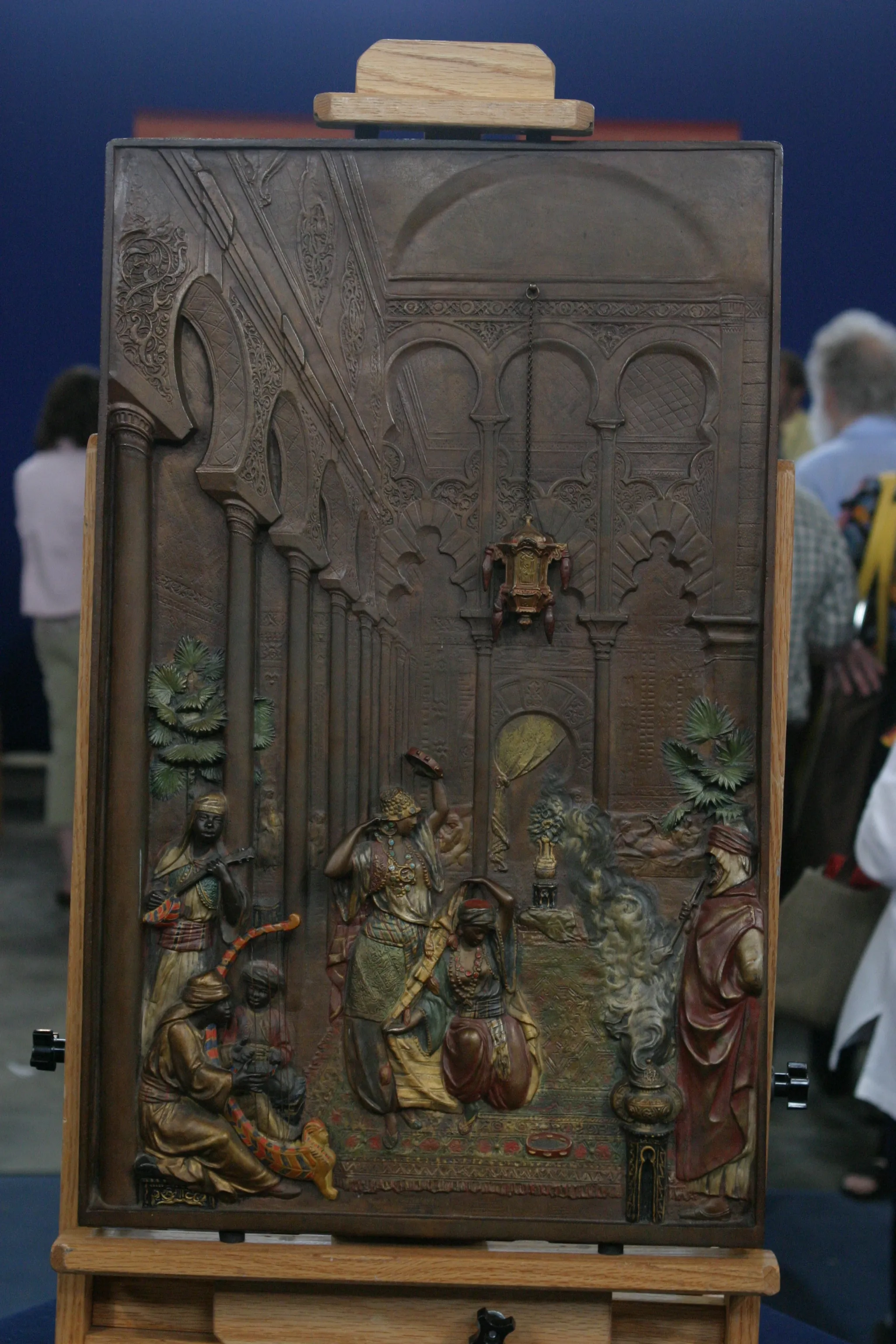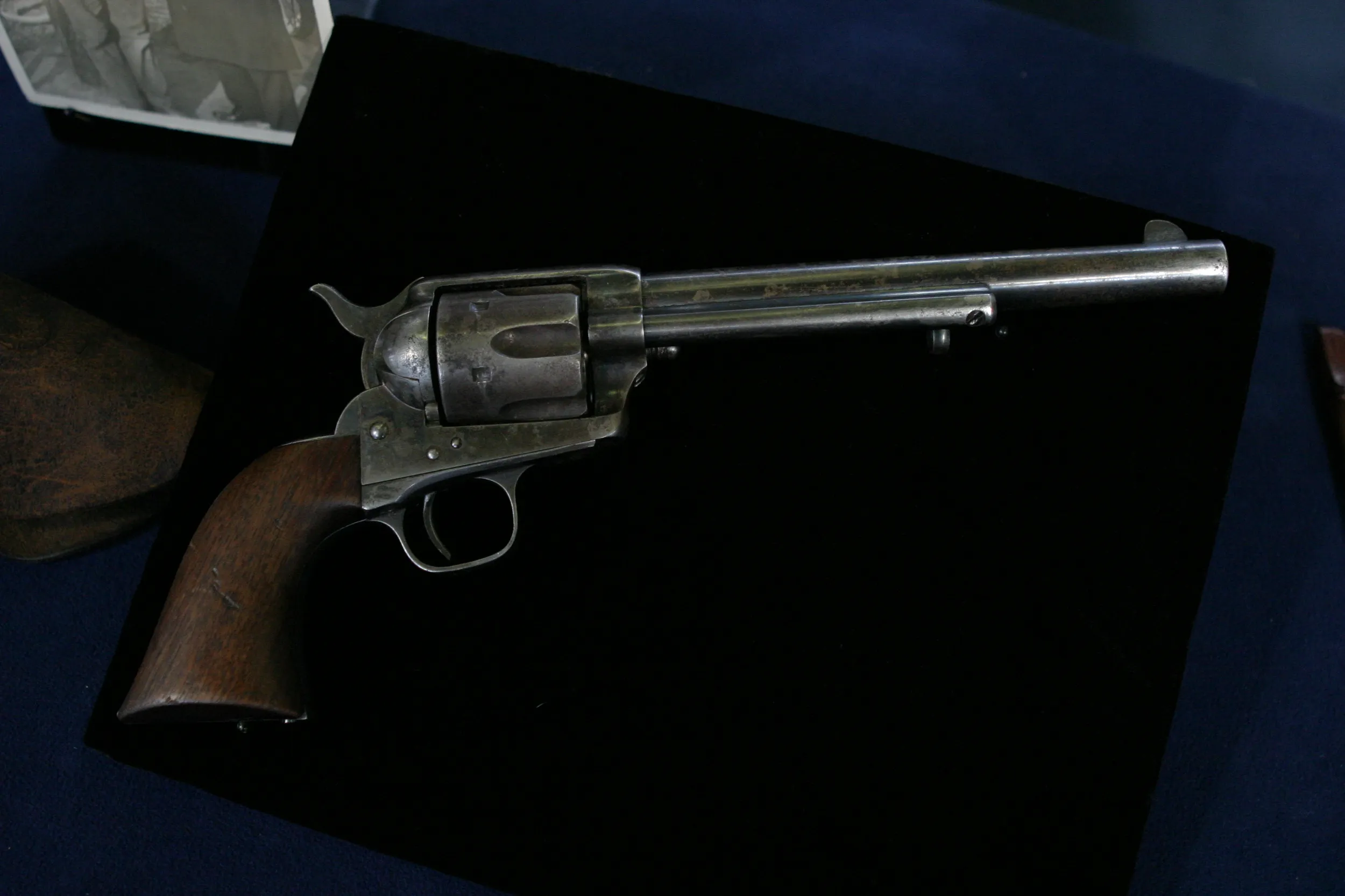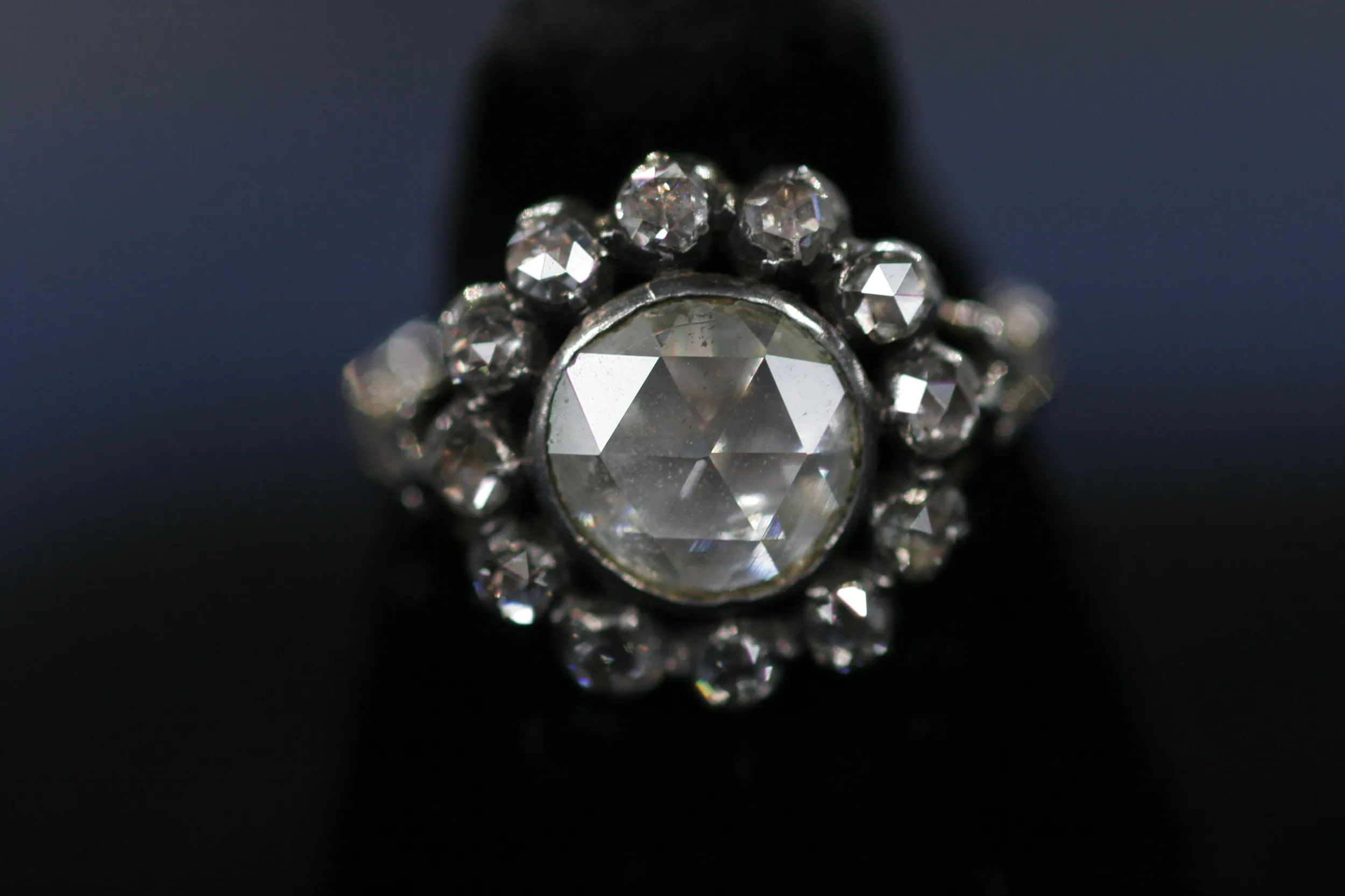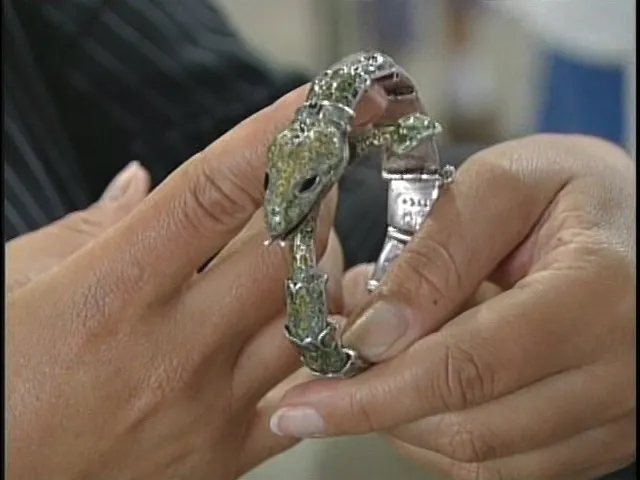APPRAISER: You brought us a terrific horn today. This is a very rare over-the-shoulder horn by John Stratton Company.
GUEST: Yes.
APPRAISER: And of the type used mostly during the Civil War and in the second half of the 19th century. Over-the-shoulder horns are interesting because they were developed by Americans for use in American marching bands for the military. And they're made so that you could have the band in front of the army and the army could hear the band.
GUEST: Yeah.
APPRAISER: Because you played it over the shoulder. Like this. And it pointed back towards the troops. It's an American invention used from about 18, let's say the mid-1850s until about the 1880s, and then it died out. This is an important maker, John Stratton, probably the most prolific of all the American makers. He started off work in New York about 1859, and I would think this was made shortly thereafter.
APPRAISER: Eventually, he moves to Germany, and makes horns there. Using the same name, same logo. And here you'll see his logo on the bell of almost all the instruments he made.
GUEST: Mm-hmm, right.
APPRAISER: I'm not sure whether or not the instruments made in Germany are much different than the ones made here. I suspect that from the type of construction, this type of joint, this zigzag joint, that this is an American-made one. This one is made out of material they called German silver. And they called it their silver models, which probably cost twice as much as the brass horn at the time. And this has string rotary valves, which are now inoperable because the strings, they're not working.
GUEST: Correct.
APPRAISER: So they're inoperable right now.
GUEST: It just needs restrung.
APPRAISER: But it could easily be made to work. I think if this was set up to play again, and a little bit of repair work done on it, uh, it's the type of thing you'd find a Civil War reenactment band musician...
GUEST: Yes.
APPRAISER: ...paying perhaps $3,000 for. And it's great that it's stayed in your family.
GUEST: I happen to be a music teacher, so I got all the musical instruments. Would you like to hear some of the partials from the trombone?
APPRAISER: Oh, yes, I'd love to hear it.
GUEST: I can play some of them. (playing notes) (chuckles softly)
APPRAISER: That was fabulous. (cheers and applause)
GUEST: Thank you very much.
APPRAISER: That was great.











